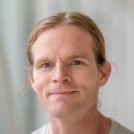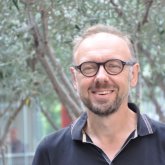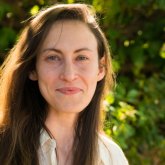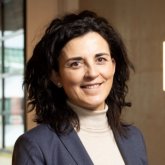The University of Twente is setting up a unique facility for groundbreaking Organ-on-Chip research and development. Organs-on-chips are tissue cultures that are used to study human disease and aging. We aim to make these miniature organs as representative as possible, so that they can replace animal testing and advance personalized medicine.
The facility combines state-of-the-art bioprinting, tissue culture, microfluidics, sensors and microscopy. In addition to this high-end equipment, the facility will develop unique wavefront shaping microscopes for imaging inside the complex culture chambers that are used for growing the tissues.
One of the challenges in the facility is to handle large amounts of heterogeneous data, often coming from a variety of commercial and experimental systems. For a single sample, we may have device fabrication data, characterization data, time-lapse image stacks, segmented 3-D data, customized measurement scripts, etc. Often at different locations, on different devices, and by different users.
In order to streamline this workflow, we are looking for a facility data engineer. your primary task will be to set up an OMERO database for storing data and metadata, streamline the storage of terrabytes of imaging data, and interface the wide range of tools used by our researchers with this database. You will work closely with the researchers and facility staff and help in automating microscopy, writing scripts for connecting laboratory equipment, (cloud-based) image processing, and other aspects of the research.
Information and application
Are you interested in this position? Please send your application via the 'Apply now' button below before December 19, and include:
- CV
- A representative sample of code you developed, or a link to a repository containing code you (co)developed
- A cover letter to explain your interest and suitability for this function. Applications without a specific motivation letter will not be considered
For more information regarding this position, you are welcome to contact Ivo Vellekoop (i.m.vellekoop@utwente.nl)
Screening can be part of the procedure.
About the department
We investigate the use of light for medical purposes. Our aim is to develop optical and hybrid optical-acoustical technologies for medical research and diagnosis, in particular in the fields of oncology, wound healing and microscopy. Physiological properties of primary interest to us are microcirculatory blood flow, hemoglobin concentrations, blood oxygenation and scattering properties in general.
Our approaches include physical research into light-tissue interaction and its measurement, biomedical engineering to realize suitable instrumentation for ex/in vivo use, and clinical evaluation together with several medical partners.
About the organisation
The Faculty of Science & Technology (Technische Natuurwetenschappen, TNW) engages some 700 staff members and 2000 students in education and research on the cutting edge of chemical technology, applied physics and biomedical technology. Our fields of application include sustainable energy, process technology and materials science, nanotechnology and technical medicine. As part of a people-first tech university that aims to shape society, individuals and connections, our faculty works together intensively with industrial partners and researchers in the Netherlands and abroad, and conducts extensive research for external commissioning parties and funders. Our research has a high profile both in the Netherlands and internationally and is strengthened by the many young researchers working on innovative projects with as doctoral candidates and post-docs. It has been accommodated in three multidisciplinary UT research institutes: Mesa+ Institute, TechMed Centre and Digital Society Institute.





